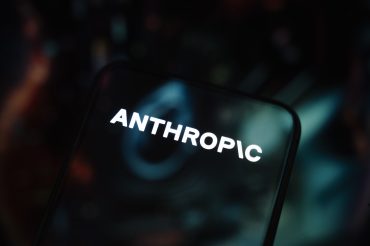
- AGI
- Big Tech
- Partnership Dispute
AI Power Struggle: Microsoft Threatens to Exit OpenAI Deal
6 minute read

Microsoft’s $13 billion AI partnership faces breakdown as OpenAI contract dispute reveals industry-wide power struggle over artificial intelligence control
Key Takeaways
- Microsoft pushes to remove AGI clause from its $13 billion OpenAI partnership, threatening to walk away from the deal entirely as tensions escalate over future AI access rights.
- $100 billion profit threshold triggers AGI determination under the disputed contract clause, which would terminate Microsoft’s access to OpenAI’s next-generation AI models and technologies.
- OpenAI considers $3 billion Windinsurf acquisition for autonomous coding agents while internally debating whether to publicly accuse Microsoft of anticompetitive behavior.
Introduction
The escalating conflict between Microsoft and OpenAI over artificial general intelligence control represents a pivotal moment that threatens to reshape the AI industry’s power structure. Microsoft now pushes to eliminate a contractual clause that would terminate its access to OpenAI’s technology upon achieving AGI, with the tech giant reportedly considering walking away from its $13 billion partnership entirely.
The dispute centers on what industry insiders call “The Clause” — a provision in their 2019 agreement that allows OpenAI to deny Microsoft access to new AI models if OpenAI’s board declares AGI has been achieved. This safeguard, designed to prevent commercial dominance of revolutionary AI technologies, now threatens both companies’ strategic objectives as the race toward AGI intensifies.
Key Developments
The AGI clause emerged from Microsoft’s landmark investment deal, incorporating a $100 billion profit threshold that would trigger AGI determination. Under this framework, OpenAI’s board must verify AGI achievement based on “sufficient AGI” criteria, with Microsoft required to agree to this determination or face potential court disputes.
Recent tensions intensified when OpenAI considered invoking the clause based on an AI coding agent, according to Wall Street Journal reports. The company has also explored whether to publicly accuse Microsoft of anticompetitive behavior as negotiations have grown increasingly contentious.
Microsoft CEO Satya Nadella has criticized OpenAI’s internal AGI definitions as “nonsensical benchmark hacking,” highlighting fundamental disagreements over technical and financial benchmarks. The contract currently prohibits Microsoft from independently developing AGI, explaining the company’s restraint in creating frontier AI models.
Market Impact
Microsoft has already generated $13 billion in AI revenue this year from the OpenAI partnership, demonstrating the immediate financial stakes involved. OpenAI remains heavily unprofitable according to internal documents, requiring restructuring to attract billions in new investment for its planned IPO.
The ongoing standoff threatens to derail OpenAI’s ambitions for its largest-ever public offering, as contractual uncertainty may deter potential investors and partners. The dispute has created market volatility around AI valuations, with analysts closely monitoring partnership structures across the sector.
Industry observers describe the conflict as a watershed moment that could set precedents for how foundational AI model partnerships are structured. The scale of opportunity has been characterized as “more transformative than the internet and more valuable than all current corporations combined.”
Strategic Insights
The dispute reveals deeper strategic shifts as OpenAI seeks greater independence from Microsoft’s influence. The company’s pursuit of the $3 billion Windinsurf acquisition for autonomous coding agents underscores its intention to develop intellectual property beyond Microsoft’s reach.
Microsoft’s position reflects broader industry concerns about maintaining access to cutting-edge AI capabilities while competitors like Meta successfully recruit top AI talent from OpenAI. The recruitment battle has intensified as OpenAI faces internal frustrations over unmet promises of computing resources.
The conflict highlights the extraordinary value concentration in advanced AI technologies, with control over AGI development becoming a matter of global strategic importance. OpenAI’s potential shift from nonprofit overseer to commercial entity raises questions about its foundational mission to limit for-profit dominance of revolutionary AI technologies.
Expert Opinions and Data
OpenAI CEO Sam Altman confirmed the strategy behind the clause, noting its broad criteria allow for board discretion in AGI determination. According to Business Insider, the clause originated when Nadella revealed in May 2023 that the agreement capped Microsoft’s profits from OpenAI’s AI technology.
OpenAI’s Chief Research Officer Mark Chen described Meta’s aggressive recruitment efforts as akin to “someone breaking into our home and stealing something,” emphasizing internal efforts to retain talented researchers. Notable departures include computer vision researcher Lucas Beyer and AI reasoning specialist Trapit Bansal, who joined Meta for higher compensation and robust computing resources.
Industry analysts view the conflict as reflecting healthy negotiation over resources and risk at technology’s frontier, while others express concern that the dispute could slow innovation or fragment the AI ecosystem. The business community watches closely as the outcome could influence investment flows and competitive dynamics for years.
Conclusion
The Microsoft-OpenAI AGI dispute transcends contractual disagreement to represent a high-stakes battle over AI leadership, control, and value creation. The absence of mutually accepted AGI definitions increases uncertainty, with OpenAI seeking strategic independence while Microsoft develops backup models to hedge its risk.
The global AI market observes that any AGI declaration under disputed circumstances could trigger repercussions extending into commerce, regulation, and public policy. The outcome will fundamentally shape how advanced AI capabilities are controlled and commercialized across the technology industry.








